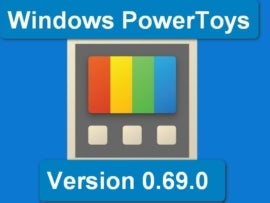
With DevOps, the need to constantly develop, test and deploy new features is critical, and this requires specialized tools to help automate and streamline the process to make it seamless. Two popular choices for CI/CD solutions are Jenkins and GitLab, and these tools are well suited to specific DevOps requirements. We compare the features and use cases for Jenkins and GitLab.
Jump to:
- What is Jenkins?
- What is GitLab?
- Jenkins vs. GitLab: Feature comparison
- Head-to-head comparison: Jenkins vs. GitLab
- Choosing between Jenkins and GitLab
What is Jenkins?
Jenkins is a free to use, open source automation server to manage CI/CD. Jenkins works on Windows, Linux and Mac servers and has a handy installer to make setup very easy.
One of Jenkins biggest strengths is its list of over 1,700 utility plug-ins that make customization and integration very straightforward. It also gives Jenkins the ability to adapt to almost any requirement.
What is GitLab?
GitLab is an open source but freemium-based CI/CD management tool that offers complete DevOps support including important built-in features such as issue tracking and version control.
GitLab only runs on Linux based servers, although it can be run on some Windows systems with extended work-arounds. GitLab also has slightly higher prerequisites than Jenkins and a suitable server will need to have node.js, Git, Ruby and Redis instead of simply JRE.
Jenkins vs. GitLab: Feature comparison
| Feature | Jenkins | GitLab |
|---|---|---|
| Windows and Mac support | Yes | No |
| Issue tracking | No | Yes |
| Extensive plugin support | Yes | No |
| Support available | No | Yes |
| Built-in version tracking | No | Yes |
Head-to-head comparison: Jenkins vs. GitLab
Easy install
Jenkins and GitLab offer a very straightforward and easy install process, and both of these options are also on-premise tools, so your own server will be required.
Installing Jenkins is very easy. The only prerequisite is that you install Java Runtime Environment first, then simply download the Jenkins installer and follow the prompts. Once installed, you will create an admin account and then access the tools and functions via a web browser interface.
GitLab can be slightly more complicated to install, especially if you don’t have experience with the specific Linux builds it requires. All the tools and features are included in a single Omnibus package though, so downloading the package that fits your install is easy.
GitLab does offer the ability to run on Kubernetes, which can be helpful if you already have this infrastructure and are knowledgeable in Kubernetes. Docker images are also officially supported
GitLab supports cloud installations using AWS, Google Cloud or Microsoft Azure. Gitlab offers special preconfigured builds for the popular three cloud services to make installation and configuration easier. When it comes to cloud installs, GitLab is definitely the better choice of the two.
User interface
Both Jenkins and GitLab have convenient user interfaces. With Jenkins, this can be a browser-based interface or via a plug-in theme which users can select. With GitLab, there is one option known as the Operations Dashboard. This shows all projects at a glance along with pipelines and other metrics.
Extensibility
Both of these DevOps tools offer the ability to build, customize or scale based on your needs.
Jenkins truly shines with their plug-in library which allows it to go from a simple project management tool all the way to managing a complete product lifecycle. But as more plug-ins are added, the entire system can start to become a bit cluttered and feel pieced together. Extreme scaling can be problematic with Jenkins compared to GitLab.
SEE: Feature comparison: Time tracking software and systems (TechRepublic Premium)
With GitLab, although it doesn’t have the plug-in library Jenkins does, it does offer more fully integrated tools meant for DevOps. This makes it a much better scaling option long term. Although not as directly flexible initially, as the flexibility or scaling is pushed, GitLab starts to pull ahead in this regard.
Choosing Jenkins vs. GitLab
Jenkins excels in small- to medium-sized environments where budgets and manpower may be limited. It is simple to use, very easy to install and configure, and able to adapt as your projects grow with extensive plug-in support.
GitLab is a more premium tool that looks to serve medium to large environments where added DevOps tools such as issue tracking, version control and complex pipelines are all needing to be managed. This makes GitLab excel when it comes to code collaboration and managing code repositories.
Both Jenkins and GitLab are extremely capable and mature tools. Deciding between the two is really just a matter of matching their strengths with the environment you plan to use them in.








